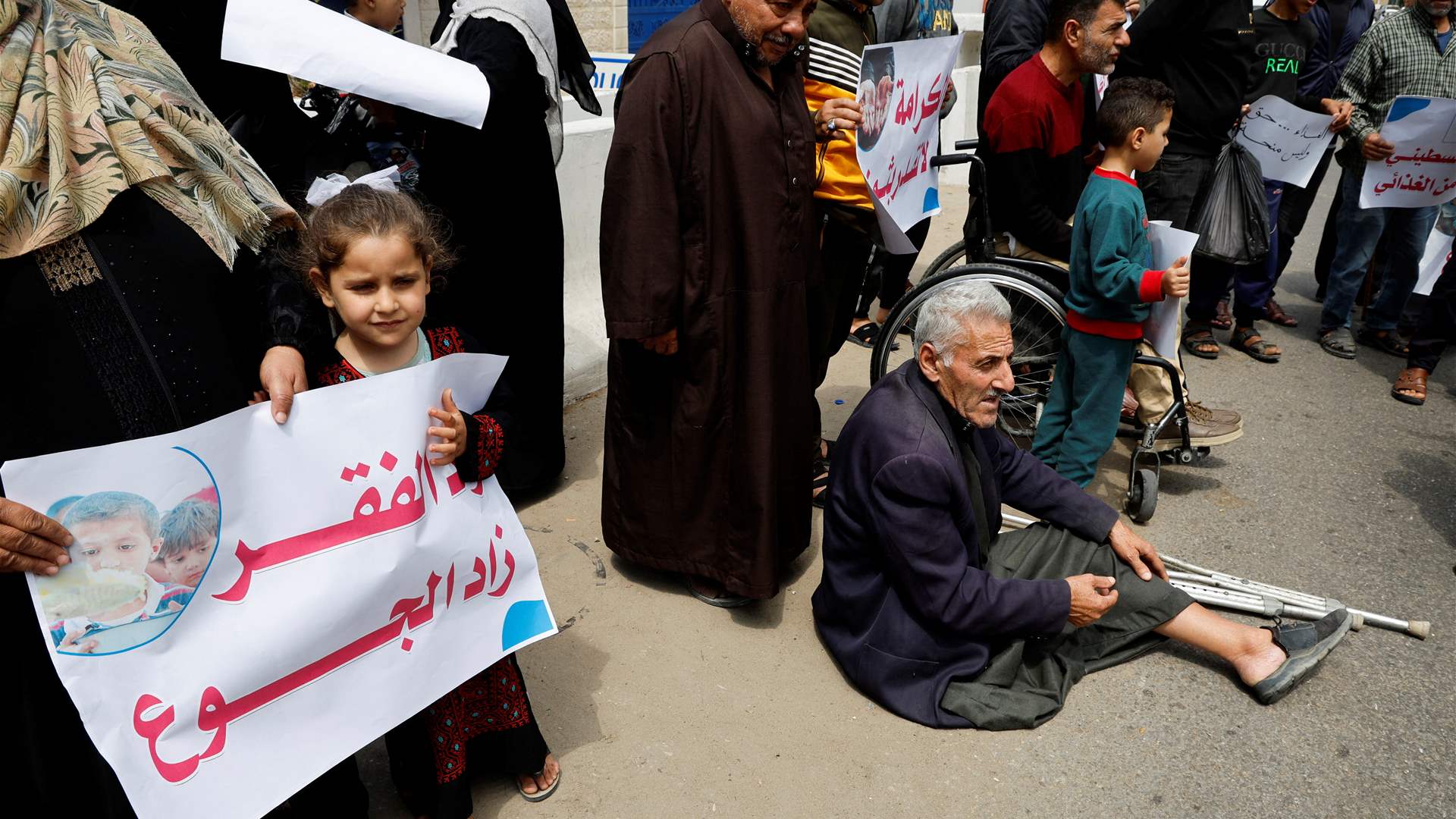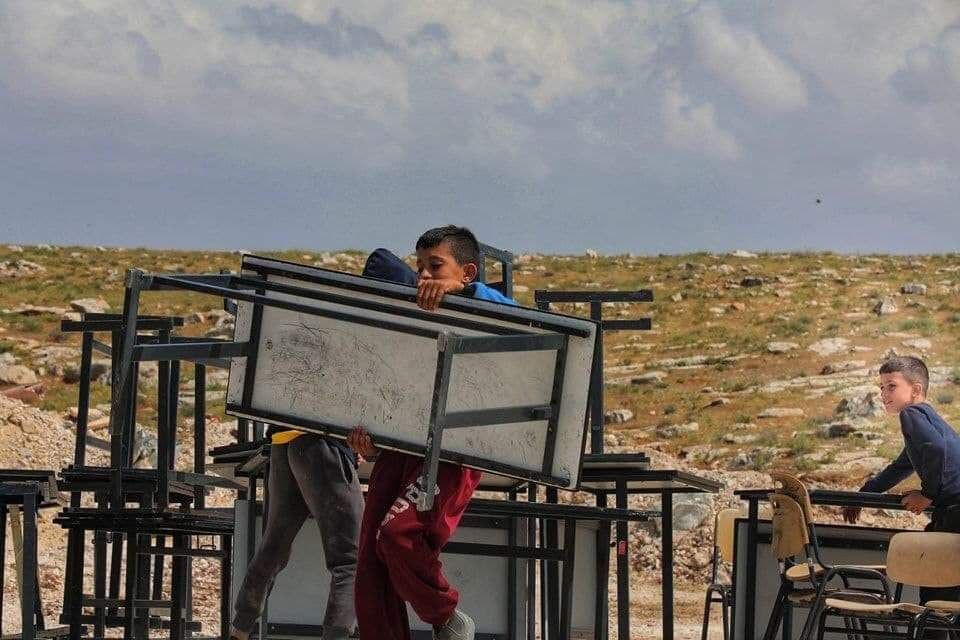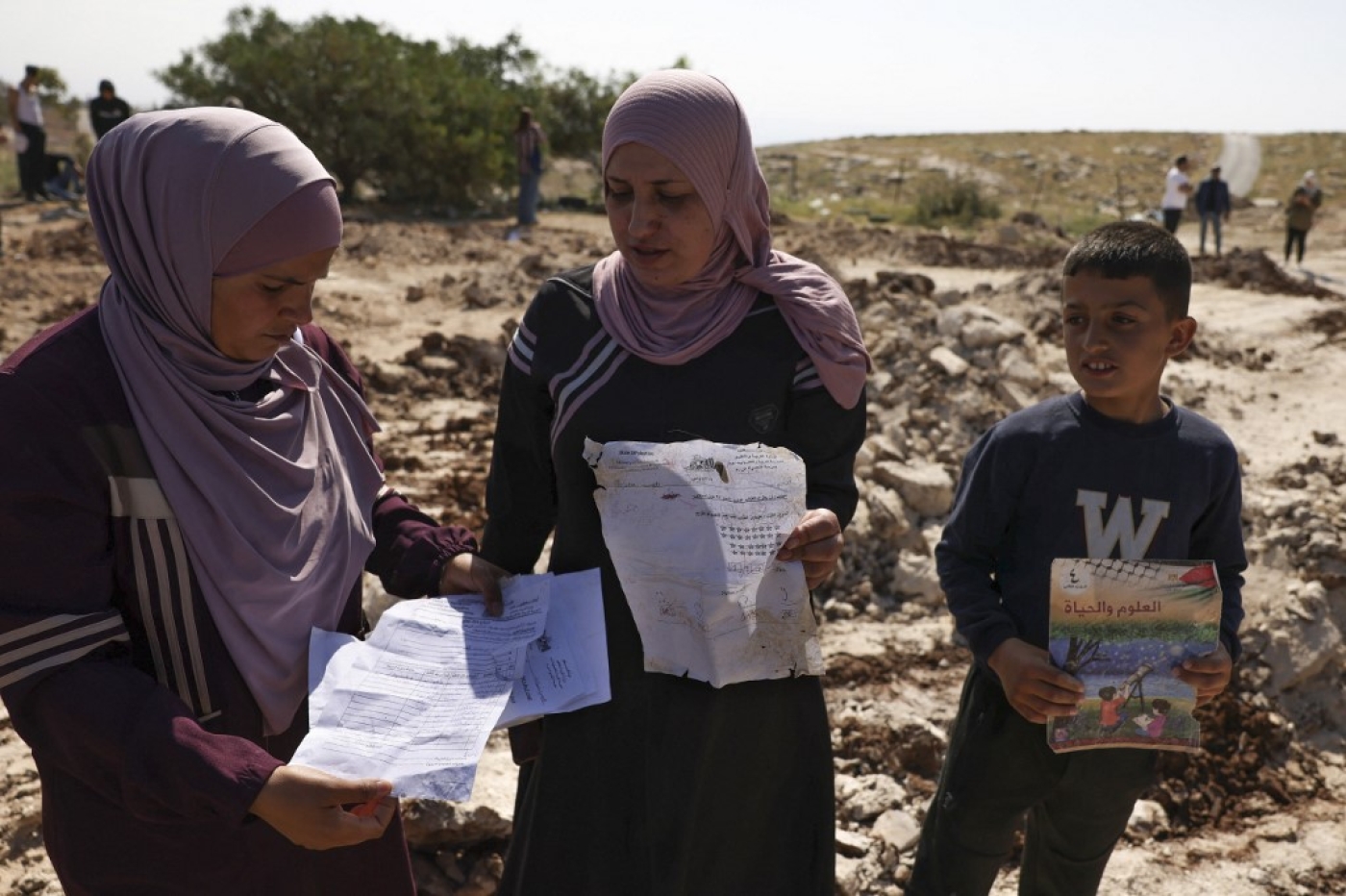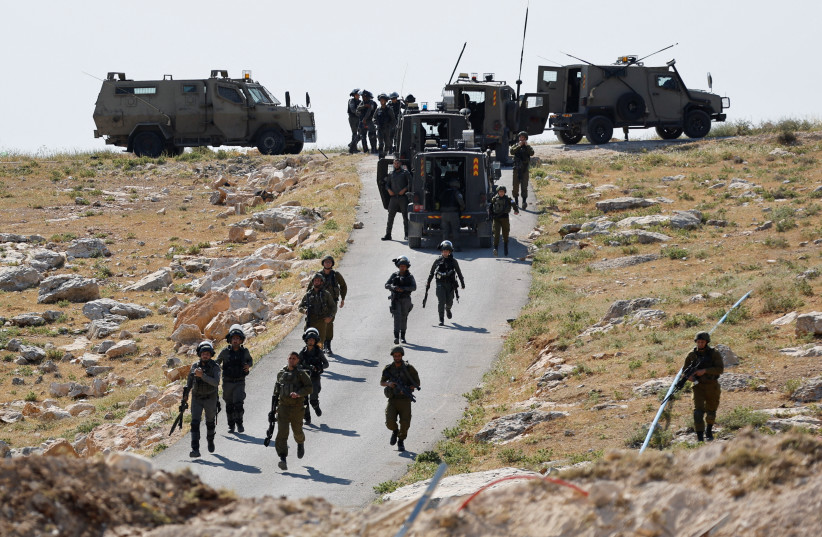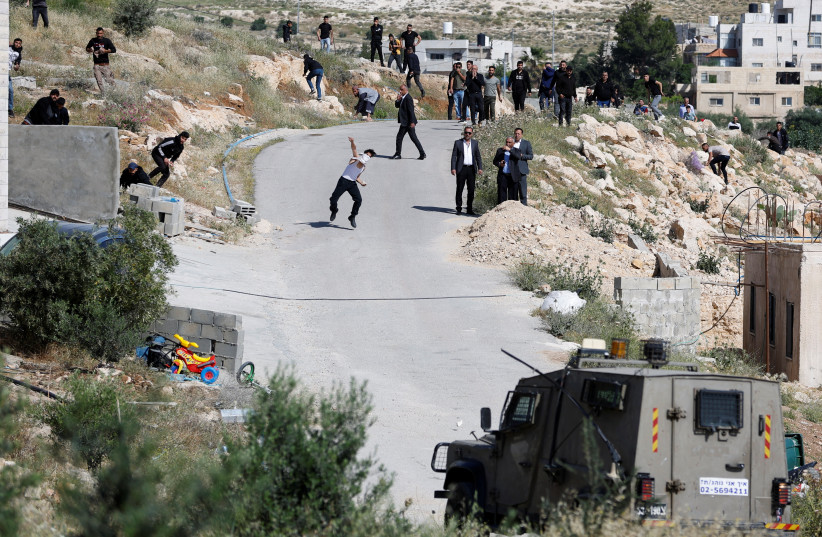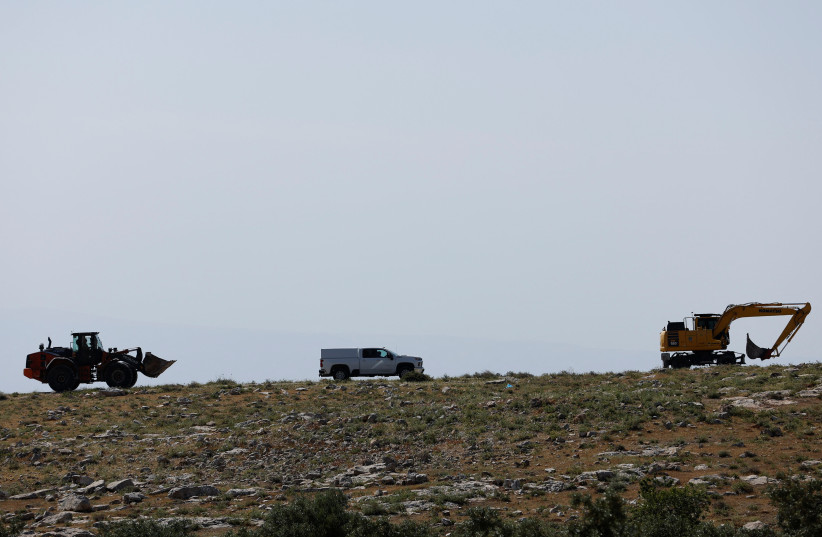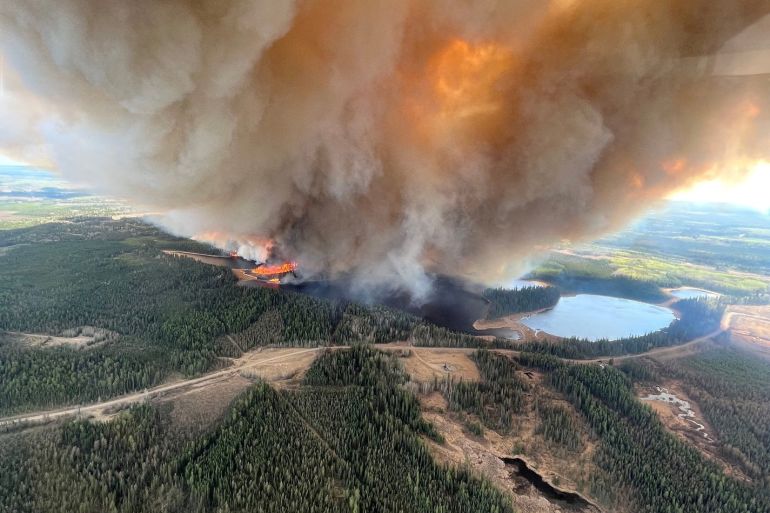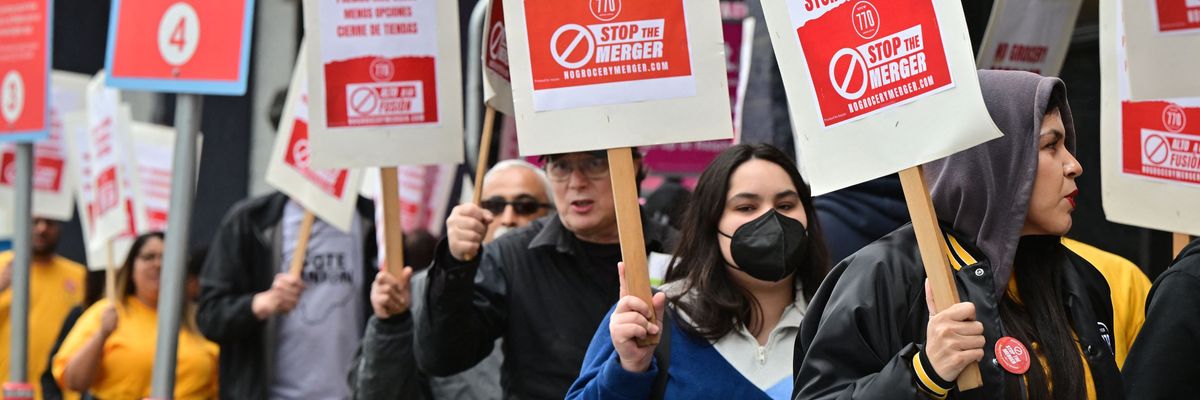As Israel celebrates its 75th anniversary, every Israeli should remember that the occupation stains the country’s independence day and that Israel is not and will not be a true democracy as long as it remains an occupying power
I couldn’t applaud and admire enough the hundreds of thousands of Israelis who protested for 17 consecutive weeks against the Netanyahu government’s scheme to subvert Israel’s judiciary under the pretense of necessary ‘reforms.’ In reality, Netanyahu and his Justice Minister Levin were bent on subordinating Israel’s Supreme Court to the whims of a simple majority in the Knesset, and the appointment of judges to a committee with an increased number of representatives handpicked by his government. Should such legislations come to pass, it will be tantamount to giving the government unlimited power without any checks and balances, destroying the very foundation of democracy on which the country was founded and in which Israelis take special pride.
The irony here though is that whereas the majority of Israelis believe that their country is a democracy and fervently poured into the streets to preserve it, and often refer to it as the only democracy in the Middle East, what escapes them is that no country can claim to be a democracy and be an occupying power at the same time. Indeed, applying two different sets of laws and rules, one that governs Israeli citizens (including Israeli settlers in the West Bank) that accords them protection and social, economic, and political freedoms, versus the military rules that govern the Palestinians under occupation, depriving them of their basic human rights, is totally inconsistent with democracy by any definition.
The question is, why have the Israelis grown so comfortably numb to the ruthless occupation and have not once protested against its continuation, as if it were a normal state of being that has no effect or repercussions on either the occupier or the occupied?
Public acrimony: To begin with, successive Israeli governments, especially since the second Intifada in 2000, during which conservative governments were largely in power, have systematically engaged in acrimonious public narratives against the Palestinians, portraying them as being an irredeemable foe. Depicting the Palestinians as such was deliberate, albeit every Israeli government knew only too well that the Palestinians will never be in a position to pose a credible existential threat against their country.
Nevertheless, they continue to promote their denunciation of the Palestinians for public consumption, knowing that they have been nurturing hatred and cultivating hostility against the Palestinians, which now defines the Israeli-Palestinian relationship. Acrimonious public narratives that set one people against another obviously fosters conflict rather than cooperation, which is essential to a functioning democracy.
Lack of awareness: Most Israelis have very little firsthand knowledge about the ruthlessness of the occupation and the pain and suffering the Palestinians are enduring day-in and day-out. If the Israelis could witness the night raids that terrify young and old, arbitrary incarcerations, demolition of houses, forced evictions, confiscation of private land, uprooting of trees, humiliating checkpoints, vandalism by settlers, and trigger-happy soldiers who shoot to kill, they would certainly have a better grasp as to why the occupation is not and cannot be sustainable, but is contrary to every human value they hold so high.
Had even some of the hundreds of thousands of Israelis who stood tall to fight for the preservation of their democracy experienced for one day what the Palestinians endure every day under occupation, they would realize how broken Israel’s democracy is and how shameful it is to demand that they are entitled to live in a free society while the Palestinians live in servitude.
Living with the status quo: After 56 years of occupation, a mounting number of Israelis have given up on finding a solution to the conflict with the Palestinians and have come to accept the status quo as a permanent state of affairs with which they comfortably live. Successive right-wing governments led by Netanyahu openly state that there will be no Palestinian state under their watch, preferring to maintain the status quo regardless of the frequent flareups of violence, which Israel learned how to control at an acceptable cost.
The notion that the status quo can be sustained indefinitely is completely misguided, as there is absolutely no sign and no reason to believe that the Palestinians will ever give up their right to establish a state of their own. In recent years the oppressive occupation has become increasingly unbearable, resentment against and hatred of the Israelis is piercing, violence targeting Israelis is escalating, and hopelessness and despair is all-consuming, leaving the Palestinians with little left to lose. The Israelis helped to create this explosive environment. Now it is only a matter of time when the next explosion will happen. This is not how democracy works and the Israelis must sooner than later face this bitter reality.
The Palestinians’ ambition to destroy Israel: Successive Israeli governments have been brainwashing the public by promoting the notion that even if the Palestinians establish their own state, it will only be the first stage in their ultimate objective to eliminate Israel altogether. But then, not a single Israeli leader who opposes the establishment of a Palestinian state has ever provided any evidence to make their case, other than using the empty rhetoric of some Palestinian militants who state that this is in fact their national goal. One might ask though by what means, military or otherwise, will the Palestinians ever be in a position to realize such an illusion against the formidable Israeli military machine that can crush any violent provocation deemed threatening to Israel’s existence?
By promoting such an absurd narrative, however, the Israeli government can ‘justify’ not only the occupation but its drive to annex more territories, expand existing and legalize illegal settlements, uproot Palestinians, and clear huge areas of its Palestinian inhabitants for military training. These activities are done systematically all in the name of national security, and unfortunately a growing number of Israelis are buying into this sinister scheme.
Normalizing the occupation: To understand the gravity of how the occupation became for most Israelis a normal state of affairs, one single statistic tells the story: 80 percent of all Israelis were born after the occupation began in 1967. For every single Israeli citizen under the age of 56, be that a soldier, a student, a scholar, a military commander, a medical doctor, a builder, a carpenter, a curator, a businessman, an engineer, or a government official, the occupation is normal. Those who want to end it have largely grown to be numb; many are even afraid to talk about it publicly, let alone openly advocate for the absolute necessity of creating an independent Palestinian state to end the conflict.
The killing of Palestinians almost daily has become routine and many Israelis only temporarily awaken when a militant Palestinian kills an Israeli Jew. Calls for revenge and retribution echo, especially by extremist right-wing Israelis, security forces immediately line up for the search of the perpetrators, often a gun battle ensues, Palestinian militants are frequently killed, and sadly innocent Palestinian civilians are often caught in the crossfire and end up paying with their lives. And of course, leave it to the settlers to do their own cruel deeds by taking revenge against any Palestinian—guilty or innocent is of no concern to them. The settlers’ pogrom against the Palestinian village of Huwara offers a chilling example of their brutality. A day or two later everything is forgotten by Israeli Jews, but the vicious cycle continues. This is Israeli-style democracy.
It is critically important to emphasize that “the normalization of occupation has made the young Israelis increasingly numb to the Palestinians’ plight, and as a result of their schooling and training they have become impervious to the people who live in servitude with little or no hope for a better and promising future. But when this indifference to the pain and suffering of the Palestinians becomes a normal state of mind for Israeli youth, it robs them of their own humanity and dignity. They do not realize how they were psychologically inculcated to become so callous and apathetic towards their young Palestinian counterparts who live in fear and uncertainty while hatred, revenge, and retribution become their only way to maintain their resistance.”
None of the above suggests that the Palestinians are innocent by any standard. They have made many mistakes. They have frequently resorted to violence and have missed many opportunities in the past to make peace as they went for all and ended up with nothing. That said, it is now up to Israel, as the dominant power, to change the dynamic of the conflict by declaring its willingness to seek peace based on a two-state solution and demonstrate to the whole world its intent while putting the Palestinians to the test. Otherwise, Israel’s social fabric will continue to disintegrate, its regional violent conflicts will intensify, and its international standing will wane. Israel will end up being nothing but a pariah state, shattering the Jewish dream of having an independent, free, strong, and just state with which every Jew takes pride, admired by its friends and envied by its enemies.
The beacon of Israel’s democracy began to fade with the start of the occupation. It is time for the hundreds of thousands of Israeli demonstrators, who have poured into the streets to protect their democracy, to face the truth: the occupation is depriving three million Palestinians in the West Bank of everything the protesters want for themselves.
Even if the protesters prevail over Netanyahu’s menacing judicial scheme, they will not save Israel’s democracy unless they relentlessly pour back into the streets and this time demand an end to the occupation and make Israel once again a beacon of democracy in the Middle East and beyond.
Dr. Alon Ben-Meir is a retired professor of international relations at the Center for Global Affairs at NYU. He taught courses on international negotiation and Middle Eastern studies for over 20 years.

